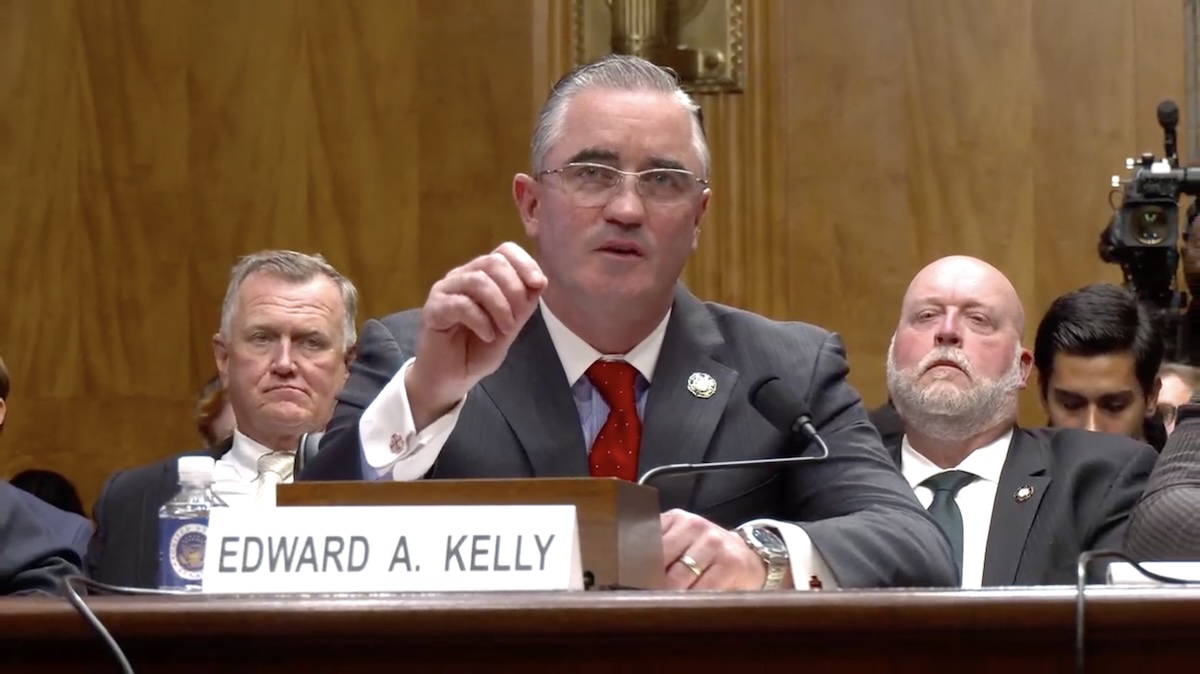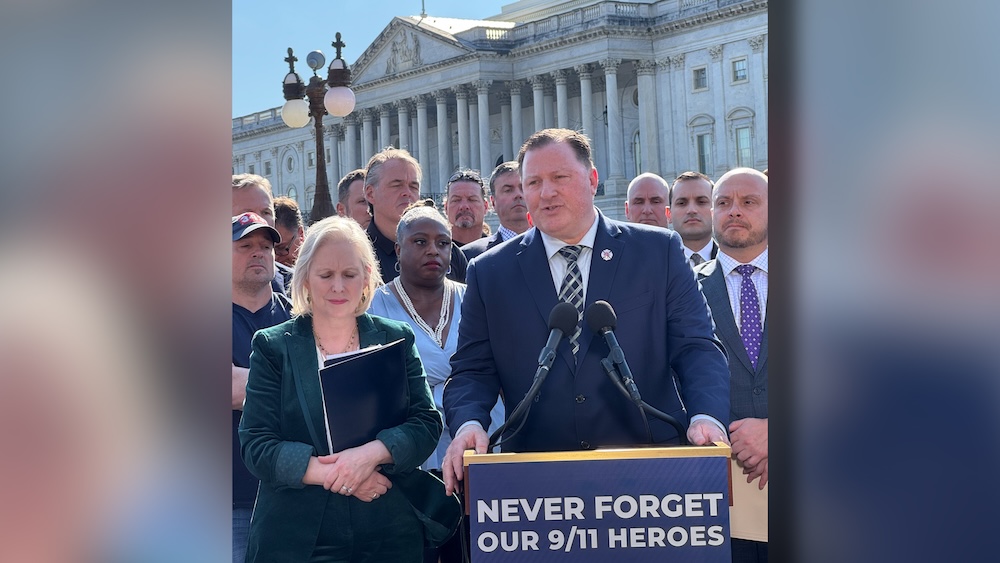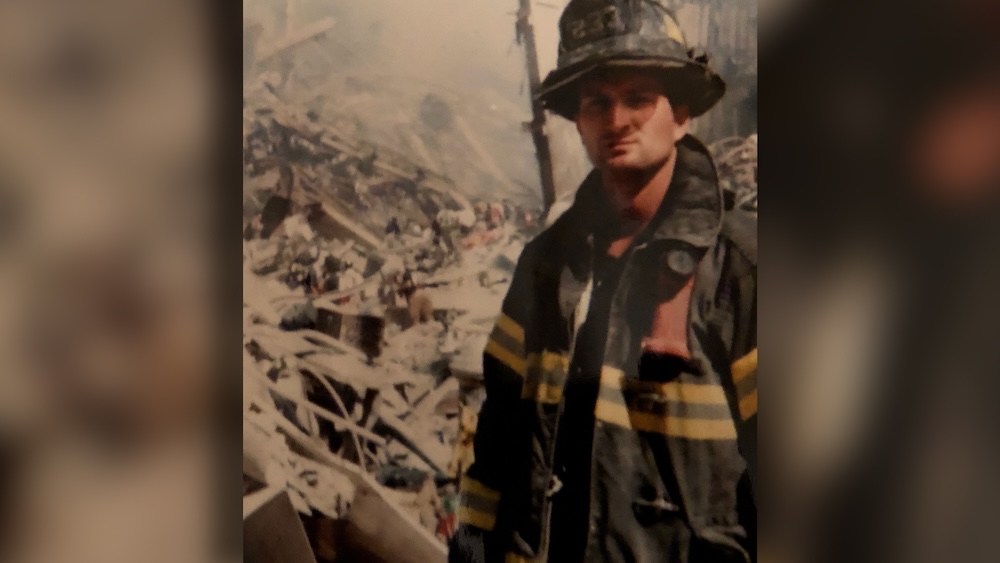The IAFF is warning Congress that consolidation among fire apparatus manufacturers is driving up costs, delaying deliveries for years, and putting the public and fire fighters at risk.
“Steadily and purposefully, apparatus manufacturers have rigged the game. Taking a well-used page out of the corporate big money playbook, a small group of manufacturers have caused prices of fire engines and ladder trucks to balloon in recent years,” General President Edward Kelly testified today. “This market manipulation has created a clear and present danger.”
Kelly appeared before the Senate Homeland Security and Governmental Affairs Subcommittee on Disaster Management at the invitation of Chairman Josh Hawley (R-MO).
Leading antitrust attorney Basel Musharbash and Chief Dennis Rubin of the Kansas City, Kansas Fire Department were also invited to appear before the subcommittee, as were REV Group’s President of Specialty Vehicle Groups Mike Virnig, and Vice President of Sales for Pierce Manufacturing Dan Meyers.
The data compiled by the IAFF and others leads one to conclude that these market conditions were planned and executed by corporate interests that do not share our collective goal of public safety.
General President EDward Kelly
During his testimony, Kelly argued the soaring costs and years-long delivery delays for fire apparatus were the result of private equity’s “monopoly-like” consolidation of manufacturers.
“The data compiled by the IAFF and others leads one to conclude that these market conditions were planned and executed by corporate interests that do not share our collective goal of public safety,” Kelly testified.
In recent years, firms such as American Industrial Partners have acquired and consolidated manufacturers, leaving just three companies – REV Group, Oshkosh, and Rosenbauer – controlling more than 70% of the U.S. market. The result has been devastating for departments.
The average price of an engine has surged from $300,000 – $500,000 in the mid-2010s to more than $1 million today, with ladder trucks now costing as much as $2 million. Delivery now takes up to four-and-a-half years, forcing fire fighters to rely on outdated and unsafe equipment.
When asked by Hawley where this crisis is occurring across the country, Kelly made clear it was a nationwide challenge.
“We have fire fighters responding in pickup trucks – it’s scary,” said Kelly. “And it’s in every city. It’s a challenge everywhere – urban, rural, suburban, paid fire departments and volunteer.”
He pointed to a recent incident in Chicago, where fire fighters responding to a deadly house fire – which killed four people, including a 5-year-old – were delayed when Tower Ladder 14 stalled.
“Fire fighters had to restart the truck to raise the ladder and rescue victims,” Kelly told Senators. “And the scariest part is, today on Sept. 10, two-and-a-half months after that incident, that very same rig is still in service.”
Hawley sharply rejected manufacturers’ claims that inflation, the COVID pandemic, and rising input costs explain the higher prices and wait times.
“Your CEO said that it is your business practice to have these backlogs” Hawley said, quoting a 2024 earnings call where REV Group CEO Mark Skonieczny praised the backlog as being favorably viewed by investors and offering significant value increasement opportunities.
“It is a deliberate company strategy, isn’t it? Your CEO is boasting about it on earnings calls,” he continued.
Hawley criticized Virnig for his company paying dividends to investors and doing stock buybacks rather than investing in addressing the multi-billion-dollar backlog.
“Another word for this would be a heist.”
It is a deliberate company strategy, isn’t it? Your CEO is boasting about it on earnings calls,.
Sen. Josh Hawley (R-MO)
Virnig said REV Group agrees the backlog is too long, but argues price increases and delays are due to a 43% increase in orders over 2022-2023. Hawley wasn’t convinced.
“If that were the truth, you wouldn’t have shut down production lines, you wouldn’t have allowed the backlog to get to where it has, you wouldn’t be boasting about it on earnings calls, and you wouldn’t be compensating your CEO when your customers are getting stiffed,” Hawley responded. “Frankly, it’s pretty indefensible.”
Sen. Andy Kim (D-N.J.), the subcommittee’s ranking member, agreed with Hawley, saying, “It seems to me this is part of the business model.”
In May, the IAFF called on the Department of Justice (DOJ) and the Federal Trade Commission (FTC) to investigate consolidation in the fire apparatus industry, arguing that manufacturers are jeopardizing public safety.
Lawmakers are taking notice. Earlier this year, Sens. Jim Banks (R-IN) and Elizabeth Warren (D-MA) launched a bipartisan investigation into private equity’s role in fire apparatus manufacturing. Hawley and Kim also sent letters to the three manufacturers, demanding answers about their pricing and delivery practices.
Kelly is calling on Congress to expand its oversight, and to coordinate its efforts with the DOJ and FTC.
“We’re seeing this crisis play out in fire departments across America. We need to stop this now, and this committee is on the right track.”
IAFF affiliates can share their department’s story at iaff.org/apparatus-form.


